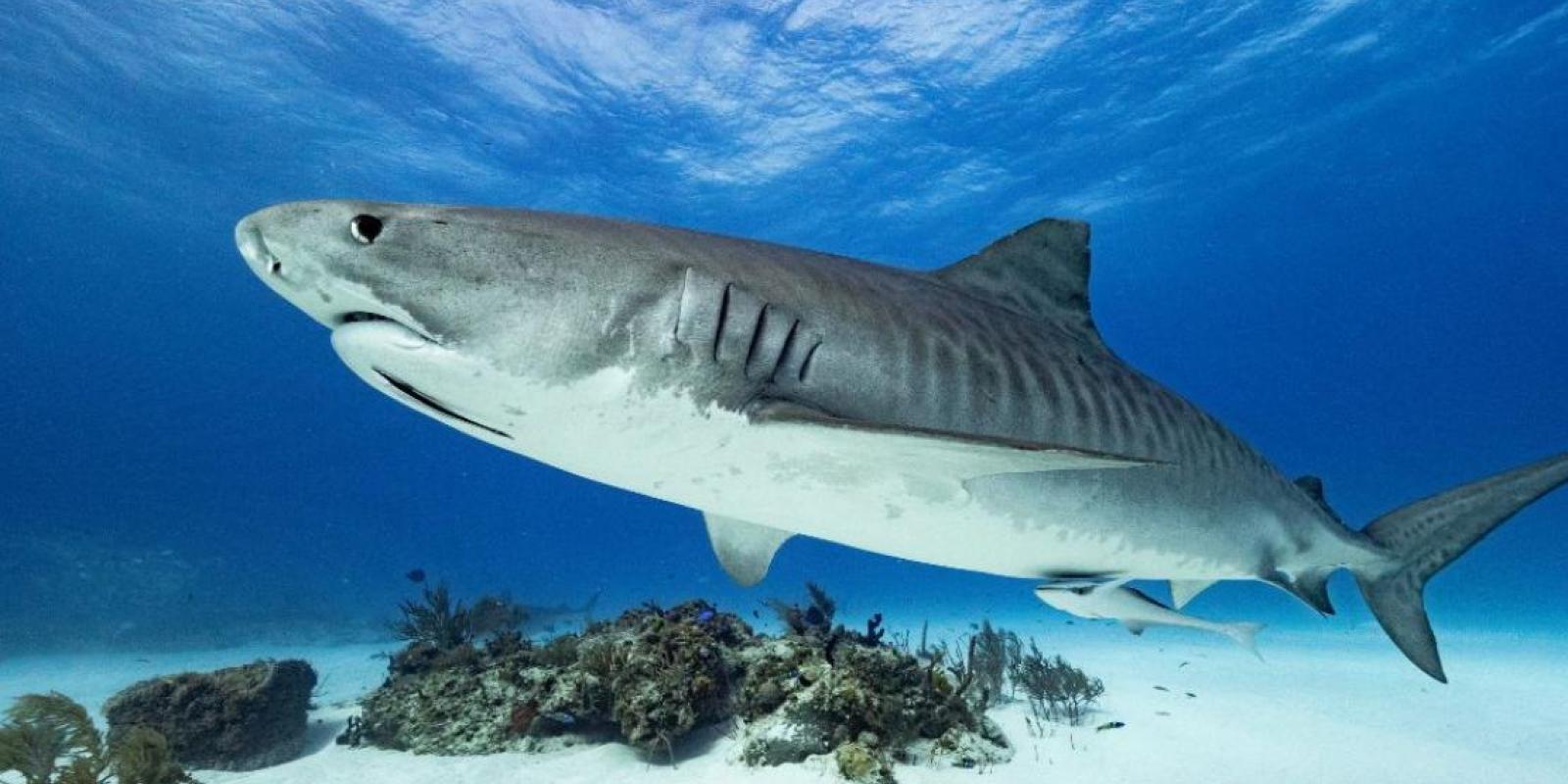
Shark Attacks: Causes and Concerns
A recent shark attack in Hurghada, Egypt, that resulted in the death of a Russian national has prompted widespread safety concerns among Egyptians and tourists alike. News@AUC spoke with Rania Siam, professor in the Department of Biology, and Lina El Sayed Aly, marine biology student and Red Sea researcher, about why these attacks happen and what can be done to prevent them.
Do we know why this attack happened?
Siam: Shark attacks can either be provoked or unprovoked by humans. The provoked shark attack occurs when the human attempts to touch the shark in some way. I have limited information about this particular incident besides the circulating videos, but it appears as an unprovoked shark attack on a swimmer.
Are unprovoked attacks common?
Siam: According to the 2022 Florida Museum of Natural History’s International Shark Attack File report, unprovoked shark attacks in swimmers are more common than provoked attacks, yet are declining worldwide.
Why would a shark attack a human if we aren’t a part of their natural diet?
Siam: The reason for a provoked shark attack is simple: The shark is using an aggressive self-defense response to a perceived human attack. The reasons behind unprovoked shark attacks are still not totally understood, but one theory is mistaken identity.
What is mistaken identity theory?
Siam: According to this theory, sharks may occasionally mistake humans for their natural prey, such as pinnipeds (seals or sea lions). This misidentification can occur due to factors like visual similarities or the way humans move in the water, particularly when engaging in activities like surfing. Surfers, for example, are known to be at a higher risk of shark attacks by certain species, such as white sharks, due to their resemblance to pinnipeds in the water.
Do humans have any influence on shark behavior?
Siam: Overfishing significantly impacts shark-human interaction because it can lead to a decline in shark populations, cause changes in the behavior and distribution patterns of sharks, deplete the populations of their prey species, and reduce habitat quality and overall ecological degradation. These combined lead to an imbalance in the food chain and ecosystem disruption and an increase in the likelihood of shark-human interactions, including instances of accidental or mistaken encounters. Additionally, discarding food in the water can cause problems.
How does discarding food affect the sharks?
El Sayed Aly: Research has shown that sewage and organic matter dumped from boats can trigger the sharks' feeding behavior. The sharks seem to think of divers nearby as competing with them for this potential meal.
Siam: This article discusses discarding food in a marine ecosystem which can create a concentrated food source in the water, which may lure sharks closer to human-populated areas. Note that when sharks encounter an abundant and easily accessible food source, they may exhibit changes in their natural behavior.
Why was the shark from the Hurghada attack embalmed?
El Sayed Aly: From what I understand, the shark was embalmed and the organs were conserved in order to do more research on the specimen as there is a severe lack of research on sharks in the Red Sea.
This is the second shark attack in Hurghada in the last year. Are these attacks a sign of a growing trend or just isolated tragedies?
Siam: It is difficult to make the assumption that there's a growing trend without appropriate studies. It is likely that more studies and more reporting and publicity on shark attacks are occurring. It is reported that the average number of unprovoked shark attacks is less than 80 worldwide, so it is quite small when you compare this to the number of swimmers or divers.
How many deaths are shark attacks responsible for?
Siam: Shark attacks are responsible for only one in over 4 million deaths annually, compared to death from heart disease, one in five; or car accidents, one in 84. Yet, when it happens it is a tragedy and hence causes such a panic.
Is there anything we can do to prevent these attacks?
Siam: The International Shark Attack File published by Florida Museum has advice for swimmers, such as not swimming with a bleeding wound, and advice for divers, such as backing up against reefs and avoiding highly contrasting swimwear to reduce shark attacks.
Governments can work to improve their shark management.
What do you mean by shark management?
Siam: The idea behind shark management is to decrease shark-human interaction, and hence shark attacks, while protecting sharks and other marine animals. Surveillance and detection, education and community awareness, professional deployment of nets and shark listening stations are different management strategies to minimize such incidents.
Could you give me an example of one of these strategies?
Siam: In New South Wales, Australia they have implemented a "shark meshing" program, where nets were placed on more than 50 beaches to reduce the chances of shark-human interaction. This measure has been proven to decrease the incidence of shark-human interaction (attacks) in Australia. Another option is establishing a “Coastal Shark Management Zone.”
El Sayed Aly: Training for boat captains and skippers working in shark sites about proper sewage disposal and fishing techniques can help reduce the human impact on shark feeding behavior.
What is a coastal shark management zone?
Siam: It is a type of human-wildlife conflict mitigation, where designating areas and measures are put in place to minimize shark-human interactions, particularly in areas with high tourism or recreational activities. This may involve as described above monitoring and surveillance programs, public awareness campaigns, or implementing exclusion zones. For sharks, this would be considered a coastal shark management zone.
Could these measures stop shark attacks completely?
Siam: There are no programs that can eliminate shark-human interaction, but these measures will reduce the risk of an interaction.
